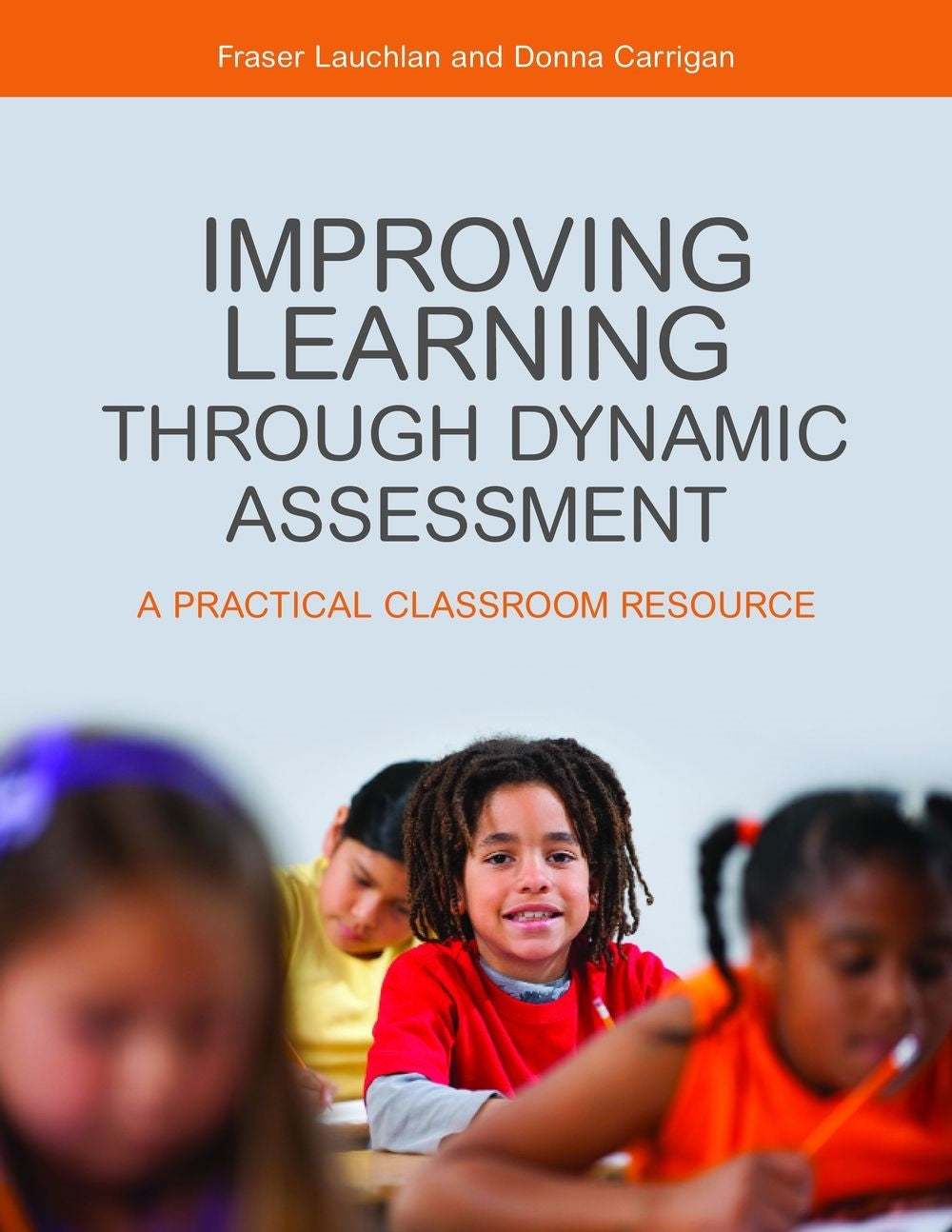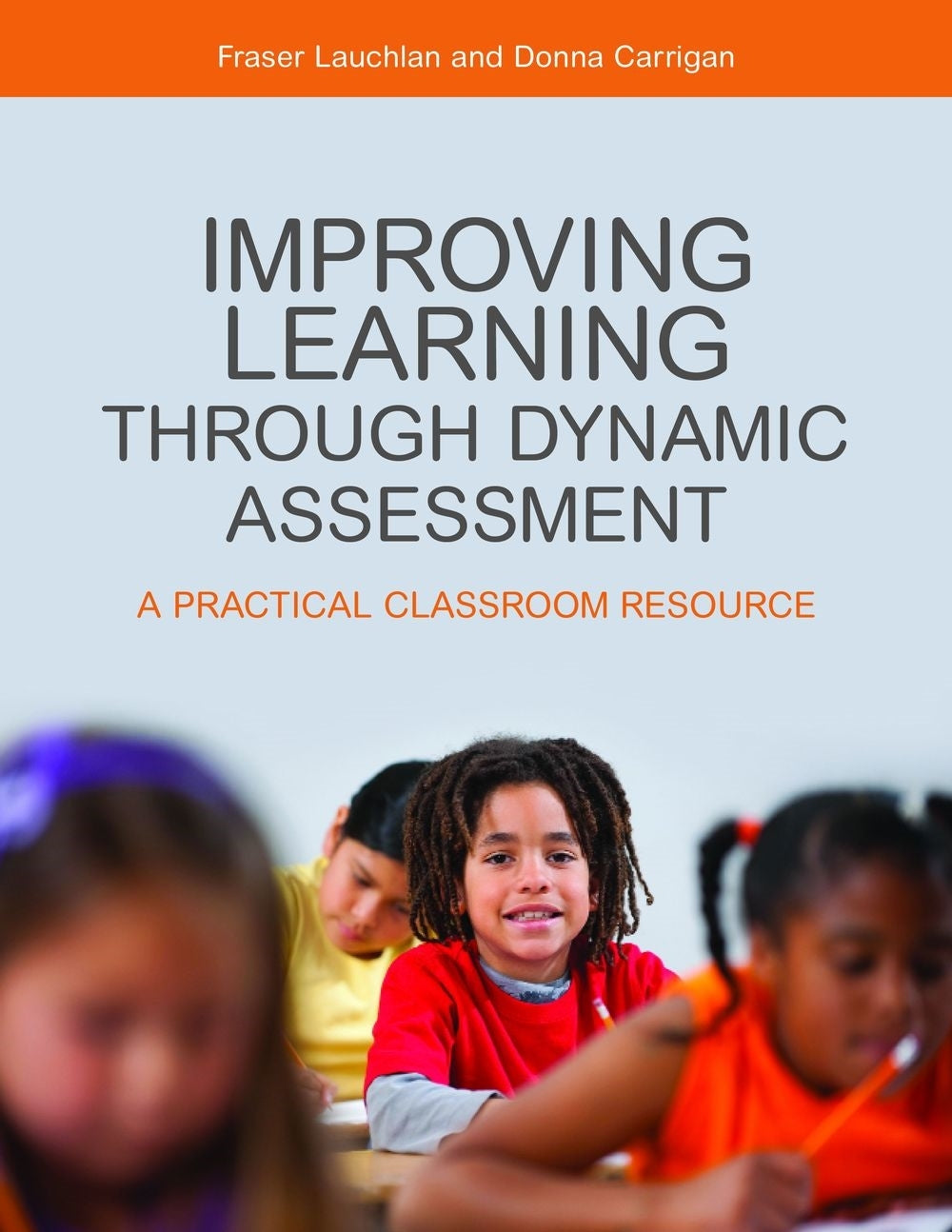
Press Reviews
Special Children
Dynamic assessment sounds an interesting concept and should be practical to implement within the classroom. The materials contained in the book and on the website look as though they could add another layer of assessment input regarding the pupil. This resource would complement the toolkit of many professionals.
Dr Simon Gibbs, Reader in Educational Psychology, Programme Director for Initial Training in Educational Psychology (DAppEdPsy), Newcastle University, UK
This will be an excellent resource for educational psychologists and fellow professionals for carrying out the sometimes complex ideas underpinning the dynamic assessment approach. Highly recommended.
Dr Chris Boyle, Senior Lecturer in Psychology and Inclusive Education, Monash University, Australia
Lauchlan and Carrigan have managed to do something that many attempt, and fail. They have produced a very usable book which bridges the gap between theory and practice in applied psychology. For too long dynamic assessment remained in the hands of academics and it always sounded like a good idea but in practice there was little guidance for practitioners to make the move from the more traditional forms of cognitive assessment to a dynamic approach. I cannot recommend this book highly enough and it should be in the hands of all practising educational (school) psychologists.
Emma Baldwin, SLT
NAPLIC MattersThe book briefly summarises dynamic assessment and the basic principles... The emphasis of the book seems to be to provide lots of practical ideas and resources...it more accurately suits upper primary children... could be used with some secondary aged students with significant language or literacy difficulties... This book is as it describes, a very practical resource packed full of useful ideas and readymade resources that can be photocopied. These can be used with a variety of different presenting difficulties.
The Australian Educational and Developmental Psychologist
The book provides guidelines for all stages and divides DA into two broad themes-cognitive and effective-with checklists and principles for both. There are profile sheets, factors sheets, and tailored strategies that are matched to the learning profile checklists and break down learning principles by theme. Not only does each stage have accompanying photocopy-ready handouts, there are also professional development materials to provide to teachers. Involving teachers, parents, and the students themselves in the stages of DA is very important and this is made easy using the structures and tools supplied. In all, this is a valuable, well-structured book. It is full of useable strategies and aids for planning and implementing interventions guided by dynamic assessments.
Nick Bozic Educational Psychologist, Worcestershire EPS and University of Birmingham
Debate - British Psychological SocietyThe intention behind this book is to provide an accessible and efficient version of dynamic assessment, which can be used by educational psychologists and others in schools to provide ideas for focused intervention... I thoroughly approve of the way this approach has been designed to be very accessible to classroom teachers and to provide a framework for collaboration in which insights from dynamic assessment can be integrated into a simple intervention plan, which is also accessible to the child. The handbook has some notable strengths, I found the checklists of learning and affective principles helpful in structuring observations and the child-friendly versions of the learning principles have been cleverly designed... I found this to be a theoretically-sound and practical handbook. It offers a useful entry point for those wanting to begin doing some dynamic assessment and a helpful additional resource for those with additional experience of the field.
Jagdish Barn, Practice Lead/Chartered Educational Psychologist, FocusPsychology
Educational Psychology in PracticeThis is a succinctly written, easily accessible and practical "how to"guide for dynamic assessment... Hard to find anything not to like about this resource as it does what it says on the tin... Recommended for: essential reading for educational psychologists and other professionals working with children and young people who are interested in the dynamic assessment approach.
